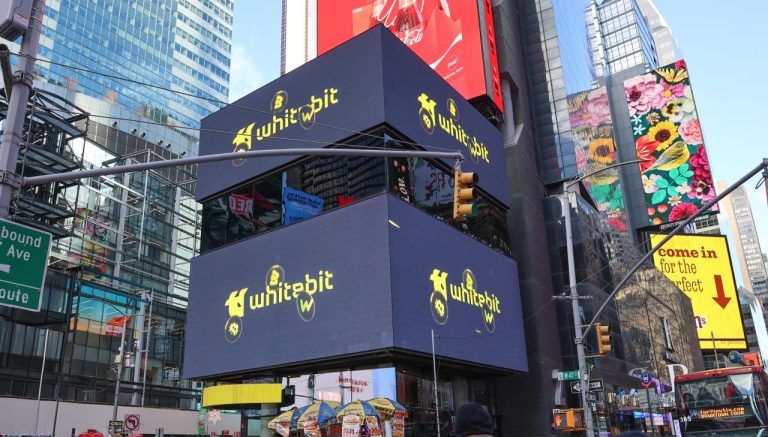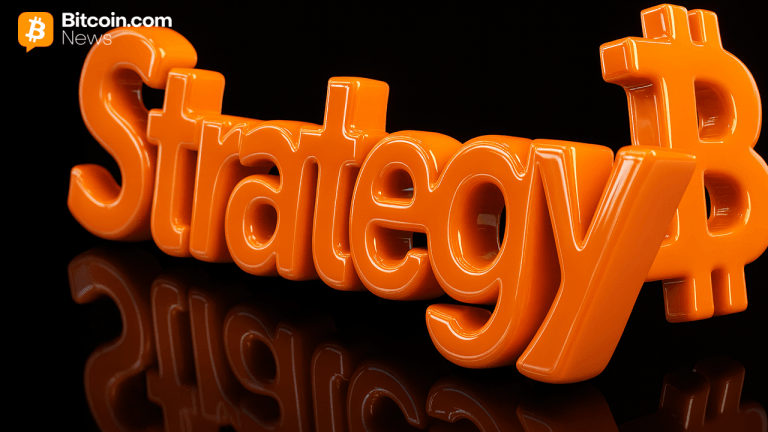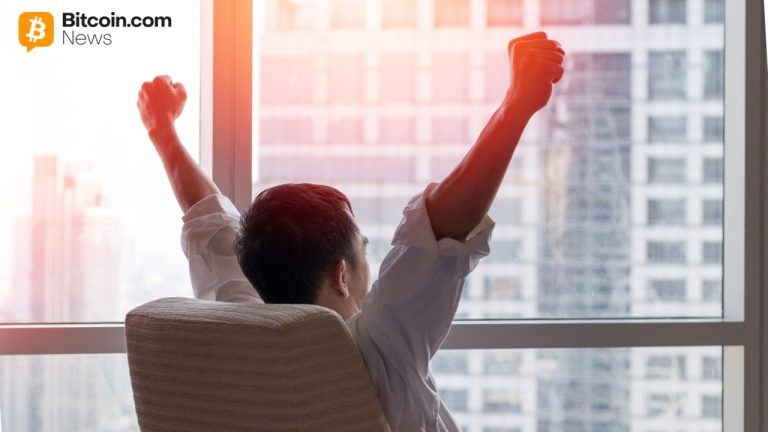From SNL and The Tonight Show to Sotheby’s: NFT Creator Bryan Brinkman
7 min read
From working on Saturday Night Live and The Tonight Show as an animator to now having more than 1,000 collectors of his NFTs, Bryan Brinkman is an example of how a digital artist can thrive in ways never before possible.
Best described as a digital pop artist with an emphasis on animation, Brinkman’s fans include high-profile NFT collectors such as Pranksy, J1mmy.eth and WhaleShark. He has also been featured at Christie’s and had fractionalized art of his put up for auction at Sotheby’s.
“Prior to NFTs, I spent 15 years working in various industries such as fashion, MTV shows and animated television series. I’ve also worked a large chunk of my career on late-night TV shows like Saturday Night Live and The Tonight Show, which revolve a lot around humor,” Brinkman says.
“When NFTs came along, animation finally became a medium that could be quantified and collected. It immediately clicked with me. There are lots of branches you can do as an animator, but this is the only one that allows you to truly be independent and in control.”
“In its simplest form, I describe myself as a digital pop artist, but I also think mixed media is a term I use as well. I like to mix 2D and 3D as well as play around with different mechanics and forms.”
Brinkman also understands how to market his work and build community — essential ingredients for an NFT artist today.
“I think about dividing your time into thirds. Spend one-third of it making art, and spend another third working on marketing your art, whether that be making cool teasers or videos talking about your art, or maybe writing Twitter threads about how you made it. That stuff is very important. Then the final third is spending time in the community, learning from other artists, talking to other artists, just connecting in general,” Brinkman states.
“I learned from many of the artists who came before me, whether it was Sarah Zucker, Coldie, Josie Bellini, Alotta Money, Hackatao, Matt Kane and a host of other OGs out there.”
Read also: The Sarah Show: Analog childhood meets dizzying digital future
Influences:
Brinkman draws inspiration from many styles and artists, but animation is at his core, and he studied it in college.
“Don Hertzfeldt [American animator, writer and independent filmmaker, best known for animated films World of Tomorrow and It’s Such a Beautiful Day] is a big one. He influenced me with a lot of his short films that are simply brilliant. Bill Plympton [American animator and cartoonist best known for his 1987 Academy Awards-nominated animated short Your Face] influenced me with his work ethic and how he was able to maintain an independent animation artist lifestyle for all these years. I think he’s nearly 80 years old now,” Brinkman states.
Brinkman also cites pop artist Keith Haring, an American graffiti-inspired pop artist, and NFT artist Killer Acid.
“I think Keith was able to ride the line between pop art and commercial art in a way that still kept his integrity. I also have to shout out Killer Acid, who inspired me to join the NFT space. He was a very early SuperRare artist.”
In fact, “Peace Sign Dude” by Killer Acid is still his favorite NFT in his collection.
“J1mmy.eth actually owned it, and he offered to give it to me as a gift, which was incredible. It’s now my never-sell grail gift. Pretty cool story because it’s the artist I discovered NFTs via and it’s my collector who first supported my career, so it’s my most special NFT.”
Read also: Become a hot new NFT artist via the ‘soft shill taco method’ — Terrell Jones
Notable sales to date:
Hot new NFT artists to watch
Brinkman is a prolific NFT collector himself, with a reputation for spotlighting and elevating other artists:
Alimo (@alimofun): Best known for curvy post-pop imagery, highly saturated colors, vibrant hand-drawn letters and worlds inhabited by figures arranged on flat tonal surfaces.
“I think Alimo does really beautiful landscapes that are very simplified and kind of pop art. The colors he uses are very soothing. I’m a big fan of the stories he tells with surfing and snowboarding.”
Ykha Amelz (@ykhaamelz): Indonesian artist who specializes in 2D. She combines her inner-child nostalgia and chaotic mind into a vibrant universe populated by a family of cartoon characters.
“With Ykha, I think the world she’s building is extremely fun. It’s sort of like a mixture of skater artwork, but then she has all these characters that go from scene to scene and tell a story. Visually, it’s eye candy.”
Jisu (@JisuArtist) — Korean-American illustrator based in Los Angeles.
“With Jisu, her work has these harsh angles on faces, but there are lots of colors and almost like a glitchiness to it. I’m a big fan. I think they’re really cool. All three of them are crushing it. I imagine they’re all going to be big names eventually.”
Read also: Breakdancing medic’s NFT auctioned at Sotheby’s — Grant Yun, NFT creator
Process:
Brinkman takes the process of making art on the blockchain seriously, as there’s a record of the work forever, he points out.
“It usually starts with sketches. Sometimes this is done in physical form on a sketchbook, or sometimes it’s Procreate on an iPad, but it unusually starts with thumbnails — which goes back to my background in animation, where you start with storyboards,” says Brinkman.
“I usually think small initially and then decide if it is an idea or an opinion and how I convey that visually. Not everything has the same deeper meaning, but usually, there’s that thought process I go through, and then I refine it. From there, the process of building kicks in, and I’ll use some animation software as I start building the pieces and it starts to evolve into its own thing. There’s a lot of layers of refinement and tweaking required as well as getting the timing and motion to feel right.”
“Once it becomes an animation, I then need to decide, is this going to be a video with audio or an animated GIF? Should it be tall, or wide, or square?”
“Finally, I’ll give consideration to how I think it’s going to be displayed, because everything’s on the blockchain forever. I think about building things for TV screens because that’s going to be how people look at this stuff in the future. It’s a lot of different steps along the way, but each of those steps can have a totally different detour that turns the work into something totally different.”
Read also
The NFT space is missing?
For Brinkman, discoverability is the missing piece of the puzzle.
“It’s really hard to find artists. We need sites that allow you to see artists and new artists. We need to create algorithms that show you other artists that are in the style you might be searching for,” he says.
“Currently, it’s all word of mouth and based on influencers on Twitter, which is fine, but it’s still a very curated way of doing it,” says Brinkman.
“I think, for better or worse, artists need liquidity on their secondary markets. To that degree, maybe some sort of universal artist bid mechanism where I will buy any piece by this artist for X amount of money. That way, there’s always a low level of liquidity like you’d see in places like Blur.”
“Some artists might say that’s a terrible thing. I don’t know. But there is that problem right now. When you buy art, it’s hard to get out of it if you need to in a pinch. I think if there is that, that will attract more people that might see it as more of a liquid asset than a long-term investment.”
Royalties debate
Since the explosion of Blur over the last four to five months, the royalty debate has been a hot topic. Incentives to use Blur to receive future airdrops have been a significant driver in OpenSea’s market-share hit.
Blur does not recognize royalties, which was part of the value proposition for NFT artists in the early days when the narrative was that creator royalties would be paid in perpetuity via a smart contract. However, royalties are actually captured at the marketplace level, and many artists have been understandably outspoken about missing out.
“I realized very early on that creator royalties were a social contract, not a smart contract,” Brinkman says.
Read also: 4 out of 10 NFT sales are fake: Learn to spot the signs of wash trading
“People would trade my SuperRare one-of-ones and not pay royalties. So early on, I knew not everybody was going to pay royalties. So, how do we look at this situation? I think some of it is an incentive question.
Brinkman says that if there are secondary hubs where everything is listed, there is discoverability and royalties are paid, then “that’s going to be the place where you go to buy art, and that’s where artists send people. I believe 70% of people will just go there and buy it.”
“You pay a premium because they have everything in one place.”
“Then there are going to be these people that are going to go off and try to find the best deal. Maybe my 70/30 prediction is off, but I think there’s always going to be the dynamic of ease of accessibility versus avoiding royalties.”
Links:
Linktree: linktr.ee/bryanbrinkman
Twitter: twitter.com/bryanbrinkman
Website: bryanbrinkman.com
Subscribe
The most engaging reads in blockchain. Delivered once a
week.





